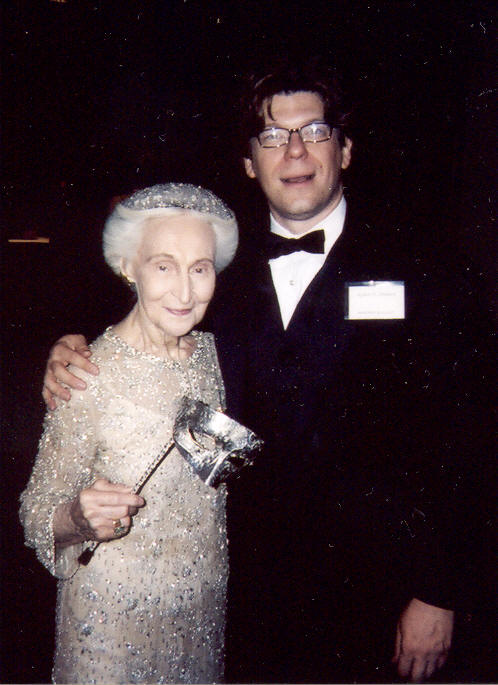|
Because the First Amendment of the US Constitution protects all forms of free speech and free expression (which is as it should be), Perfect Propriety took a real beating in 2007. From the "wide stance" of Senator Larry Craig to "Don’t tase me, bro!", from "Why don’t you shut up?" to the Brawl at Symphony Hall, people from all walks of life have behaved badly.
Don Imus tops the list of Perfectly Improper Users of Free Speech this year. Back on April 4 he casually referred to the women’s basketball team of Rutgers University as "nappy-headed hos." The ensuing brouhaha saw Imus evicted from the airwaves and learning just how wrong offhand slander is. To Etiquetteer’s surprise he returned to the airwaves in December, but appears to be appropriately chastened. With his history, however, Don Imus bears watching.
Overall the women of the Rutgers basketball team behaved with true decorum. Kia Vaughn’s ill-considered defamation lawsuit, however, brought down the tone a notch. Aside from the fact that Imus never mentioned her by name, the lawsuit was filed on August 14, months after the incident. Her reputation would have been better served by keeping silent. Which leads Etiquetteer to ask, which is more important: money, fame, or honor?
On May 9 Perfect Propriety got a black eye at that Brahmin bastion, Symphony Hall. Depending on who’s telling the story, either Matthew Ellinger asked Michael Hallam to be quiet, causing Hallam to punch him – or that Hallam was struck first by Ellinger. The "brawl at Symphony Hall" cast a blot on the start of the Pops season, but these two men did at least drop charges against each other a month later. Once upon a time Boston audiences could be guaranteed to keep the excitement only on the stage; let’s hope this isn’t a new trend!
The ranks of the Perfectly Proper were sadly thinned with the deaths of former First Lady Lady Bird Johnson, New York’s Brooke Astor, and Boston’s own Cathryn Keith. Their departures leave us with a real gap. Matrons just aren’t made the way they used to be.
Instead we’re left with Kyla Ebbert, the Hooters waitress who created a national scandal – oh, forgive Etiquetteer, "dialogue" – about Perfectly Proper attire for air travel. Ms. Ebbert, you may remember, was asked to cover up an outfit of debatable skimpiness on a Southwest Airlines flight. Rather than go home and contemplate this quietly, she and her mother brought the story to no less than Matt Lauer onThe Today Show. Etiquetteer is hardly suggesting a burqa instead, but is a knee-length skirt and a blouse that doesn’t look like a wifebeater too much to ask?
Etiquetteer’s opinion of this young woman was later completely justified; she undercut her own moral indignation by posing for Playboy, something no lady would ever do. Etiquetteer hopes that she’ll learn she has more to offer than her body before it's too late.
The behavior of politicians may be scrutinized more than anyone else’s, so you’d think they’d use their Perfect Propriety all the time. On the other hand, the rigors of air travel and security are enough to aggravate almost anyone. On August 20, Rep. Bob Filner (D-California) got booked for assault and battery at Dulles Airport after trying to charge into an employee-only area. It seems he was upset about a delay in claiming his luggage. Last time Etiquetteer checked, the Declaration of Independence said " . . . all men are created equal." That includes you, Congressman!
Closer to Etiquetteer’s home base, Massachusetts State Senator Scott Brown (R-Wrentham) gave Generation Y a taste of its own medicine by quoting their own profanities. Senator Brown and his daughter Ayla, an American Idol finalist, had taken a lot of abuse from other high schoolers onFacebook. The senator received a lot of criticism for doing this, but Etiquetteer thinks it’s the kind of civics lesson more teens could use. Unfortunately for the senator, it resulted in even more unwanted attention, including the discovery that he had posed nude for Cosmo back in 1982.
And speaking of nudity, Brattleboro, Vermont, long a bastion of liberalism, made it into the news this summer after enacting a controversial public nudity ban. Any time some utopia of unclad young people gets started, it just takes one stupid, naked old man to bring it down. In this case 68-year-old Clayton Crowe showed up in downtown Brattleboro, all the way from Arizona, for a clothing-optional summer vacation. He was attracted by all the media attention over a dozen or more nude teenagers hanging out in a local parking lot. Mr. Crowe’s appearance at Brattleboro’s Gallery Walk wearing a fanny pack and a smile did not endear him to anyone. A member of the Brattleboro Selectboard, Dick DeGray, was quoted in many news articles saying "Just because you can doesn't mean you should." And really, Etiquetteer could not agree more. To paraphrase an old song, "You’re Never Fully Dressed Without Your Clothes."
It shouldn’t take a law for people to know that you should wear clothes in the downtown business district! Wear your birthday suit to the swimmin’ hole, the hiking trail, or public facilities where it’s the dress code. And while Etiquetteer Wags an Admonitory Digit at the Unclad Youth of Downtown Brattleboro, they have at least the excuse of youthful rebellion and ignorance. Mr. Crowe, however, is way old enough to know better at his age.
November 10 King Juan Carlos of Spain memorably asked Venezualan dictator Hugo Chavez "Why don’t you shut up?" Unfortunately Chavez was ranting and insulting other diplomats by calling them mean names like "fascist." Etiquetteer can only offer the advice of his mother: "When you lose your temper you lose your point." Unfortunately the real downside of this diplomatic incident is that its recording has become a popular ringtone.
And speaking of popular ringtones, "Don’t tase me, bro!" has become a universal catchphrase since Andrew Meyer was subdued by campus police at the University of Florida. Apparently Mr. Meyer "jumped the queue" during a student forum with failed presidential candidate Senator John Kerry in September and "the event organizers were unhappy with his line of questioning." Etiquetteer certainly hopes that Mr. Meyer has learned his lesson about waiting his turn in line! He could also have remained more composed at the microphone, which might have kept the event organizers and the police from taking the actions they did. Senator Kerry could and should have been allowed to interact with this young man, who could have an important future if he partners with Perfect Propriety.
"A lady always knows when to leave a party," goes the old saying. Not that we needed any more proof that Britney Spears was no lady, but her comatose appearance at the MTV Music Awards embarrassed the nation. Senator Larry Craig proved that he’s no lady either! In September, his sudden refusal to resign from the Senate after his disgrace made the nation writhe almost as much as his behavior in that airport restroom.
Just because one finds jury duty onerous or boring doesn’t give one the right to tune out during the trial. In July, Ruhela Khanom, a Muslim twentysomething in London, was charged with contempt of court after she was discovered listening to an iPod under her headscarf during a murder trial. The following month prosecutors declined to refer her case to the High Court citing "insufficient evidence," even though jurors heard the music and an iPod was found on her person when she was searched outside the court. It’s just as well Etiquetteer was not the judge; Etiquetteer would have given her the maximum sentence! What’s really horrible about Ms. Khanom’s selfish behavior, however, is that it throws more suspicion on devout, well-behaved Muslims who wear the hijab. This not only impedes Perfect Propriety, but world peace.
Etiquetteer wishes you all a Happy, Healthy, and Perfectly Proper New Year!

Etiquetteer cordially invites you to join the notify list if you would like to know as soon as new columns are posted. Join by sending e-mail to notify <at> etiquetteer.com.
|















